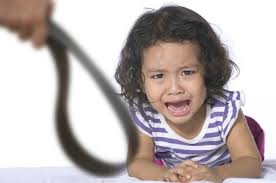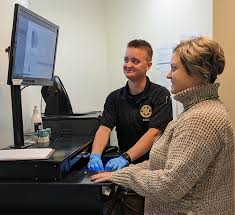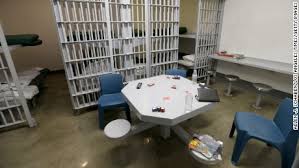Introduction
When charged under California Penal Code Section 273d, commonly referred to as child abuse, understanding the legal ramifications and court proceedings that follow is crucial. This section of the law deals strictly with the physical abuse of a child, defining penalties and legal processes to address allegations. Facing such charges can be overwhelming and carries serious consequences. This page provides a thorough overview of what one can expect in court, including arraignment, preliminary hearings, trial processes, potential defenses and the advantages of being represented by an Orange County criminal defense attorney. Whether you are seeking information for yourself or a loved one, knowing the ins and outs of how these cases are handled in the California judicial system can be invaluable in preparing for what lies ahead.

Explanation of California Penal Code 273d
California Penal Code Section 273d specifically addresses the crime of child abuse, also referred to legally as the “corporal injury on a child.” This statute makes it a criminal offense to impose physical injury or cruel punishment on a child. It’s important to understand that the law recognizes child abuse as more than just physical harm; it also includes any form of cruel physical punishment that is deemed excessive or inappropriate given the child’s circumstances. The defendant must have inflicted the injury willfully, and the injury must have resulted in a traumatic physical condition for the child. This can range from minor bruising to more severe harm. A charge under this section can result in significant legal penalties, including imprisonment, which underscores the seriousness with which California treats child abuse and the necessity of being represented by an Orange County criminal defense lawyer.

Penal Code 273d states:
“(a) Any person who willfully inflicts upon a child any cruel or inhuman corporal punishment or an injury resulting in a traumatic condition is guilty of a felony and shall be punished by imprisonment pursuant to subdivision (h) of Section 1170 for two, four, or six years, or in a county jail for not more than one year, by a fine of up to six thousand dollars ($6,000), or by both that imprisonment and fine.
(b) Any person who is found guilty of violating subdivision (a) shall receive a four-year enhancement for a prior conviction of that offense provided that no additional term shall be imposed under this subdivision for any prison term or term imposed under the provisions of subdivision (h) of Section 1170 served prior to a period of 10 years in which the defendant remained free of both the commission of an offense that results in a felony conviction and prison custody or custody in a county jail under the provisions of subdivision (h) of Section 1170.
(c) If a person is convicted of violating this section and probation is granted, the court shall require the following minimum conditions of probation:
(1) A mandatory minimum period of probation of 36 months.
(2) A criminal court protective order protecting the victim from further acts of violence or threats, and, if appropriate, residence exclusion or stay-away conditions.
(3) (A) Successful completion of no less than one year of a child abuser’s treatment counseling program. The defendant shall be ordered to begin participation in the program immediately upon the grant of probation. The counseling program shall meet the criteria specified in Section 273.1. The defendant shall produce documentation of program enrollment to the court within 30 days of enrollment, along with quarterly progress reports.
(B) The terms of probation for offenders shall not be lifted until all reasonable fees due to the counseling program have been paid in full, but in no case shall probation be extended beyond the term provided in subdivision (a) of Section 1203.1. If the court finds that the defendant does not have the ability to pay the fees based on the defendant’s changed circumstances, the court may reduce or waive the fees.
(4) If the offense was committed while the defendant was under the influence of drugs or alcohol, the defendant shall abstain from the use of drugs or alcohol during the period of probation and shall be subject to random drug testing by his or her probation officer.
(5) The court may waive any of the above minimum conditions of probation upon a finding that the condition would not be in the best interests of justice. The court shall state on the record its reasons for any waiver.”

Overview of Child Abuse Laws in California
Child abuse laws in California are particularly stringent, reflecting the state’s commitment to protecting its youngest residents from harm. In addition to Penal Code 273d, multiple statutes address various aspects of child welfare, including laws against emotional abuse, sexual exploitation, and neglect. The legal framework is designed to safeguard children not only from physical abuse but also from mental and emotional harm. These laws are enforced through a combination of criminal prosecution and protective services, which often work in tandem to provide a comprehensive approach to prevent and respond to issues of child abuse. Under California law, certain professionals, such as teachers and doctors, are mandated reporters who must report any suspicions of child abuse to the authorities, further highlighting the proactive stance taken against this issue.
Arrest and Booking Process

When an individual is suspected of violating California Penal Code 273d, the typical legal process begins with the arrest. Law enforcement officers may arrest the suspect based on either direct evidence of abuse or probable cause. Following the arrest, the suspect undergoes a booking process in the Orange County jail where their personal information is recorded, and the formal charges are detailed. The suspect’s fingerprints and photographs are taken during booking, and these are entered into a nationwide database, which helps in identifying offenders and prevents further harm. This initial phase of the legal process is crucial as it marks the formal accusation of the suspect and sets the stage for upcoming legal proceedings in the Orange County Superior Court.
Bail and Release Conditions

Once booked, the defendant may be held in custody pending a bail hearing, where the court will determine if the defendant is eligible for release and under what conditions. The severity of the crime, risk of flight, past criminal record, and the potential threat to the community, especially to the victim, are all considered when setting bail. In cases involving Penal Code 273d, the court may set a higher bail amount given the vulnerability of the victims involved. Additionally, the court might impose specific release conditions such as a restraining order to protect the child, or mandatory attendance in counseling sessions aimed at addressing behaviors associated with child abuse.
Court Arraignment

The arraignment is the first formal court appearance for the defendant. During this proceeding, the charges against the defendant will be read aloud, and the defendant will have the opportunity to enter a plea—usually “guilty,” “not guilty,” or “no contest.” This stage is critical as it sets the tone for the defense strategy. If a “not guilty” plea is entered, the court will schedule further proceedings, such as a pre-trial conference and a trial date. It is during the arraignment that the defendant, ideally represented by an Orange County criminal defense attorney, gets a clear understanding of the legal battle ahead and can begin to prepare their defense in earnest. Effective representation by a criminal defense lawyer is crucial at this phase to ensure the rights of the accused are fully protected and that a fair trial is secured.
Pre-trial Motions and Hearings

When charged with violating California Penal Code Section 273d, which is related to child abuse, there is usually a series of pretrial motions and hearings. These initial stages are crucial as they determine how the trial will proceed. The defendant’s Orange County criminal defense lawyer can file various motions to dismiss charges, suppress evidence, or request a change of venue to ensure a fair trial. Pretrial hearings also give your criminal defense attorney and prosecution a chance to negotiate plea deals which might involve reduced charges or sentencing recommendations in exchange for a guilty plea. These proceedings are instrumental in shaping the course of the case, potentially even resulting in the charges being dropped if procedural errors or rights violations are proven.
Trial Procedures and Evidence Presentation

The trial itself is a formal process where both the prosecution and your criminal defense attorney present their cases to either a judge or a jury. In child abuse cases under Section 273d, the prosecution must prove beyond a reasonable doubt that the defendant’s actions constitute abuse as defined by the statute. The evidence presented often includes medical records, testimonies from child welfare experts, witnesses, and sometimes the child themselves, depending on the age and emotional state of the minor. The defense might counter with their expert witnesses to challenge the prosecution’s claims or to provide an alternative explanation of the events. Crucial in this phase is how the evidence is perceived and interpreted by the jury or judge, which will ultimately affect the verdict.
Sentencing Guidelines and Possible Outcomes

If the defendant is found guilty of child abuse under Section 273d, the sentencing follows. California’s legal framework includes specific guidelines that judges use to determine the appropriate sentence based on the severity of the abuse and other factors such as the defendant’s criminal history and the circumstances surrounding the offense. Sentences can vary significantly but generally include imprisonment, mandatory counseling, and possible loss of custody or visitation rights. Defendants could face additional penalties if the child sustained serious physical injuries or if the abuse was particularly egregious. Alternatively, if found not guilty, the defendant will be acquitted of the charges but should be aware that the social and emotional implications of the accusation may still linger.
Importance of Legal Representation in Section 273d Cases
Facing charges under California Penal Code Section 273d is a serious matter that can have significant consequences on one’s life and liberty. Legal representation by an experienced Orange County criminal defense lawyer in such cases is not just important—it’s crucial. An experienced criminal defense lawyer provides several vital services including:
• Deep Knowledge of the Law: Understanding the complex legal frameworks and statutes like Section 273d is fundamental. A qualified criminal defense lawyer knows the intricacies of the law and how it applies to your specific case. This knowledge is vital in developing a strong defense strategy.
• Protection of Rights: From the moment of arrest, numerous legal rights need to be protected. A criminal defense lawyer ensures that the defendant’s rights are upheld throughout the legal process, including the right to a fair and speedy trial, the right to remain silent, and the right to be judged by a jury of peers.
• Negotiation Skills: Often, child abuse cases are settled out of court through plea deals. Skilled Orange County criminal defense attorneys negotiate these deals on behalf of their clients, potentially leading to reduced charges or more favorable sentencing terms.
• Emotional Support: Facing allegations of child abuse can be emotionally devastating. A criminal defense attorney also acts as a steady support system throughout the stressful court proceedings, helping to mitigate stress and providing reassurance in times of uncertainty.
In conclusion, anyone charged with child abuse under California Penal Code Section 273d should seek competent legal counsel immediately. The possible outcomes of a conviction can be severe and life-altering, and only a skilled domestic violence attorney can effectively navigate the complexities of such serious legal matters. Achieving the best possible outcome in court depends significantly on the quality of the representation.
Free Telephonic Consultation with an Orange County Criminal Defense Lawyer

Call The Law Office of EJ Stopyro today at (949) 278-6353 for a free and confidential telephonic consultation. Mr. Stopyro will be happy to evaluate your case and explore your options.
Conclusion
When facing charges under California Penal Code Section 273d, it is crucial to understand the gravity of the accusations and the complexity of the legal proceedings involved. Effective legal representation is vital in navigating through the allegations of child abuse, which carry significant legal and social consequences. As court processes vary based on the specifics of each case, having a knowledgeable criminal defense attorney can provide the necessary defense strategies and support. Remember, every individual is entitled to a just and fair trial, and an experienced criminal defense lawyer is your best safeguard to protect your rights and achieve a favorable outcome.
